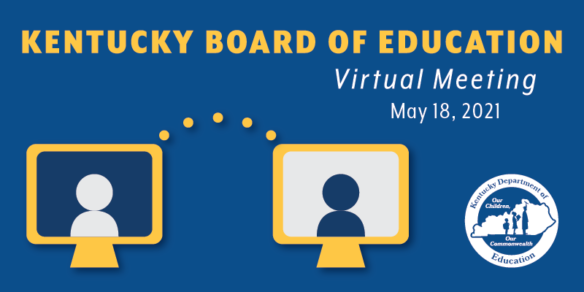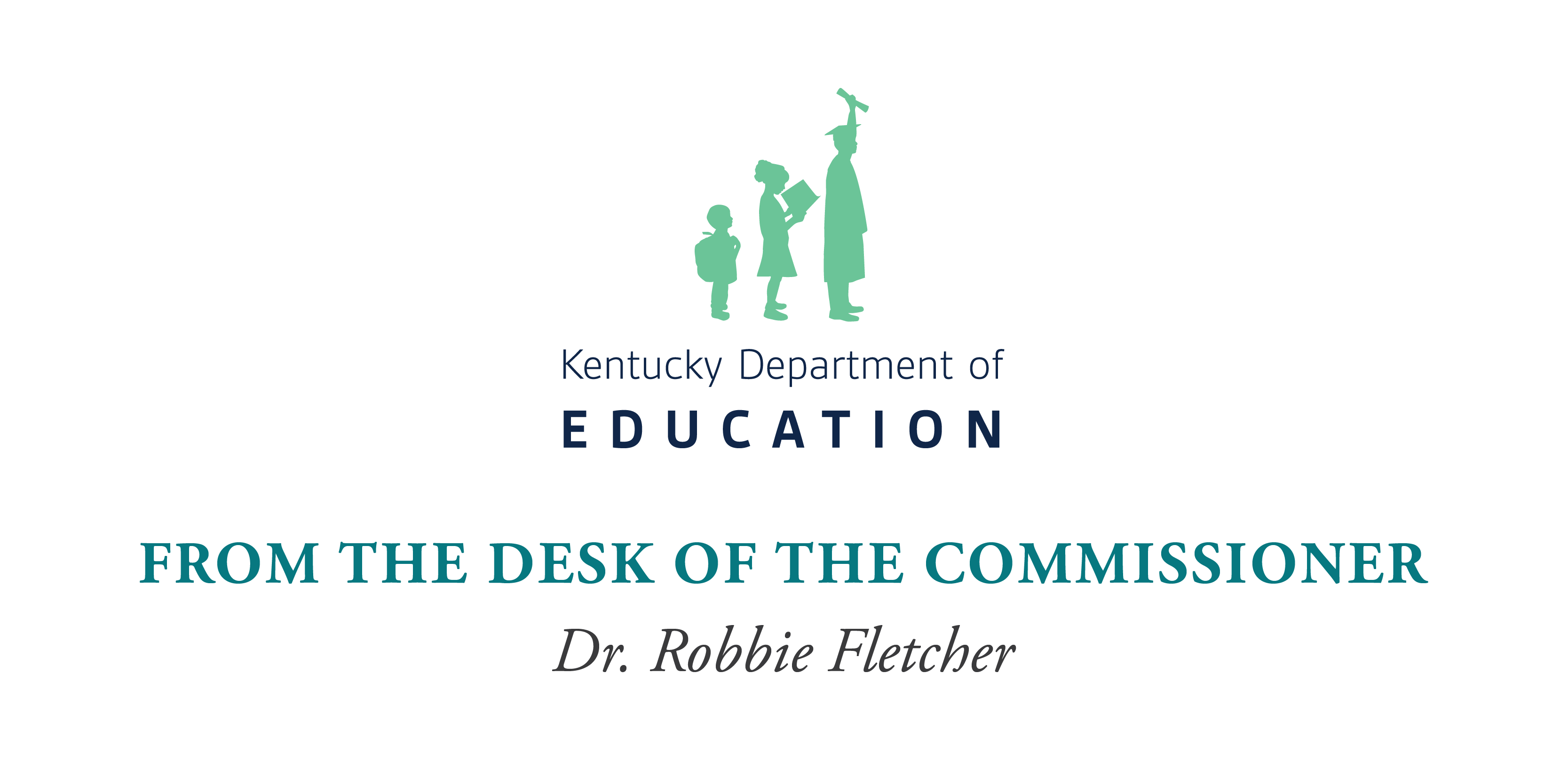 The Kentucky School for the Blind (KSB) and the Kentucky School for the Deaf (KSD) will have 13 students participating in the Supplemental School Year Program (SSYP) during the 2021-2022 school year. The Kentucky Board of Education (KBE) approved the schools’ and students’ requests during a May 18 special meeting.
The Kentucky School for the Blind (KSB) and the Kentucky School for the Deaf (KSD) will have 13 students participating in the Supplemental School Year Program (SSYP) during the 2021-2022 school year. The Kentucky Board of Education (KBE) approved the schools’ and students’ requests during a May 18 special meeting.
Senate Bill 128 – passed during the 2021 legislative session – created the Supplemental School Year Program, which offers any Kentucky K-12 public or private school student the option to use the 2021-2022 school year as an opportunity to retake or supplement classes they completed during the 2020-2021 school year. Students had until May 1 to submit a request to their district’s board of education. The districts must decide whether they will honor all or none of those requests by June 1 and submit their plans to KBE by June 16.
KBE acts as the managing board for both KSB and KSD. The board unanimously voted to approve the schools’ requests.
There were seven from KSB and six from KSD. Seven requests came from students in middle school and high school, while six came from elementary school students.
Carol Ann Morrison, the Kentucky Department of Education’s (KDE’s) director of state schools, said staff from KDE’s Office of Special Education and Early Learning consulted with the schools’ principals to ensure the schools are prepared to provide the SSYP to students. Morrison said adequate staffing was available and the dorms were prepared for participating students.
More information on the SSYP can be found in KDE’s guidance document, Senate Bill 128: Supplemental School Year Program 2.0.
Approval of Waiver Requests
KBE approved requests to waive a pupil attendance regulation, 702 KAR 7:125, which would provide more flexibility for virtual learning options for schools during the 2021-2022 school year.
David Cook, KDE’s director of innovation, said districts had the opportunity to create “powerful, high-quality virtual programs” during the pandemic due to executive orders from Gov. Andy Beshear and emergency actions from KBE. Unfortunately, those opportunities ended with the close of the school year.
“We have districts sitting in a vacuum of not having any authority to do some of the things they had been doing during the pandemic,” Cook said. “The truth is they are still going to have students and families who want their students to continue to participate in virtual opportunities in the fall of ’21.”
The waiver of the pupil attendance regulation will allow recognition of virtual learning opportunities established under policies of the district. The waiver creates an option for districts to operate virtual programs for elementary students and count those students in attendance in order to receive state funding.
When signing the waiver, districts agree to adhere to a list of 15 assurances, such as following specific guidelines for tracking attendance, implementing real-time strategies to monitor and track student and teacher interactions, and ensuring that fully virtual students’ schedules align with the standard day of in-person students.
According to Cook, the waiver gives elementary school students virtual opportunities they did not have prior to the pandemic, and also creates an attendance-based form of virtual learning.
So far, 109 school districts have requested the waiver. The board’s vote also gave Commissioner of Education Jason E. Glass permission to approve any additional requests that are submitted for this waiver.




Leave A Comment